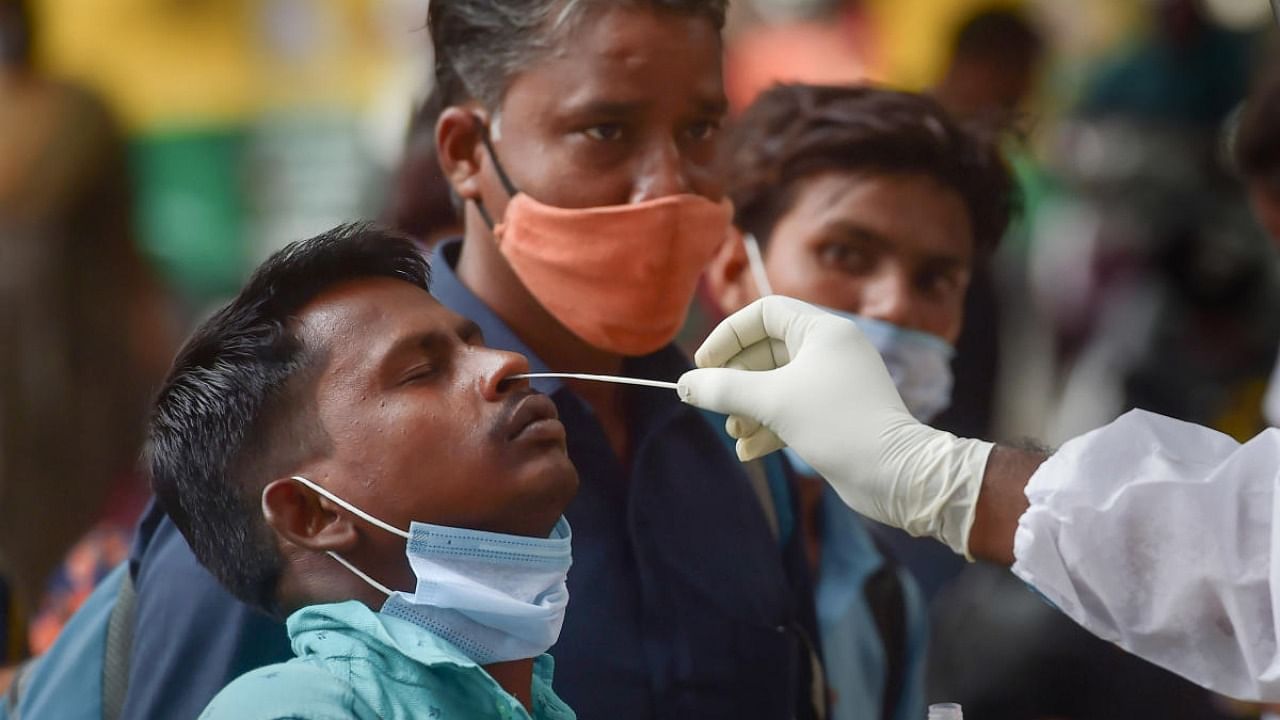
The Andhra Pradesh Health Department on Thursday said that B.1.617 (known as Indian double variant) and B.1 were the major Covid-19 strains identified in the positive samples from Andhra Pradesh, Karnataka and Telangana in April this year.
“These are very infectious and spreading in the younger age groups too,” said Andhra Pradesh Covid-19 Command Control Centre Chairman Dr Jawahar Reddy, who served as special chief secretary (health) during the Covid-19 first wave, citing the Center for CSIR-Cellular and Molecular Biology research data.
The Andhra Pradesh Health Department officials have refuted the alarming reports in a section of the media claiming that the N440K (B.1.36) variant was 10-15 times more virulent and that it could be fueling the Covid-19 wave in certain regions like Andhra Pradesh. The spread of N440K was detected in Andhra Pradesh, Karnataka and Telangana, in June last year.
N440K is an old variant of Covid-19 prevalent till February and its share in positive cases now is minimal, Dr Reddy said.
The Hyderabad-based CSIR-Center for Cellular and Molecular Biology (CCMB) has also clarified that “though in controlled cell culture, N440K replicates more, it does not necessarily mean it can compete with other variants the same way in a real-life pandemic where new variants keep coming up.” Like the other viruses, SARS-CoV-2, the Covid-19 causing virus, is also mutating over time to thrive, taking different forms known as variants.
“Our genome studies say that N440K is now diminishing. Our main focus as a community should be on reducing the spread of coronavirus. The more it spreads, the more variants come up, the more mess we create by increasing uncertainties and fear,” CCMB said in a tweet.
“The N440K strain was prevalent in December 2020 and January to February 2021. However, N440K strain cases dropped down drastically in March and its share among the positive cases is very minimal,” Dr Reddy said. The official pointed out that WHO epidemiological updates have only mentioned lineage B.1.617 as the Variant of Interest from India.
“If variant N440K is of such public health concern as reported, it should have by now found a place in WHO and ICMR reports. Hence, it is clarified that research data so far does not establish N440K as very virulent,” Dr Reddy said
Posted as TTD executive officer later, Reddy was brought back last month by CM Jaganmohan Reddy to lead the Covid-19 mitigation measures in the wake of a more lethal second wave.